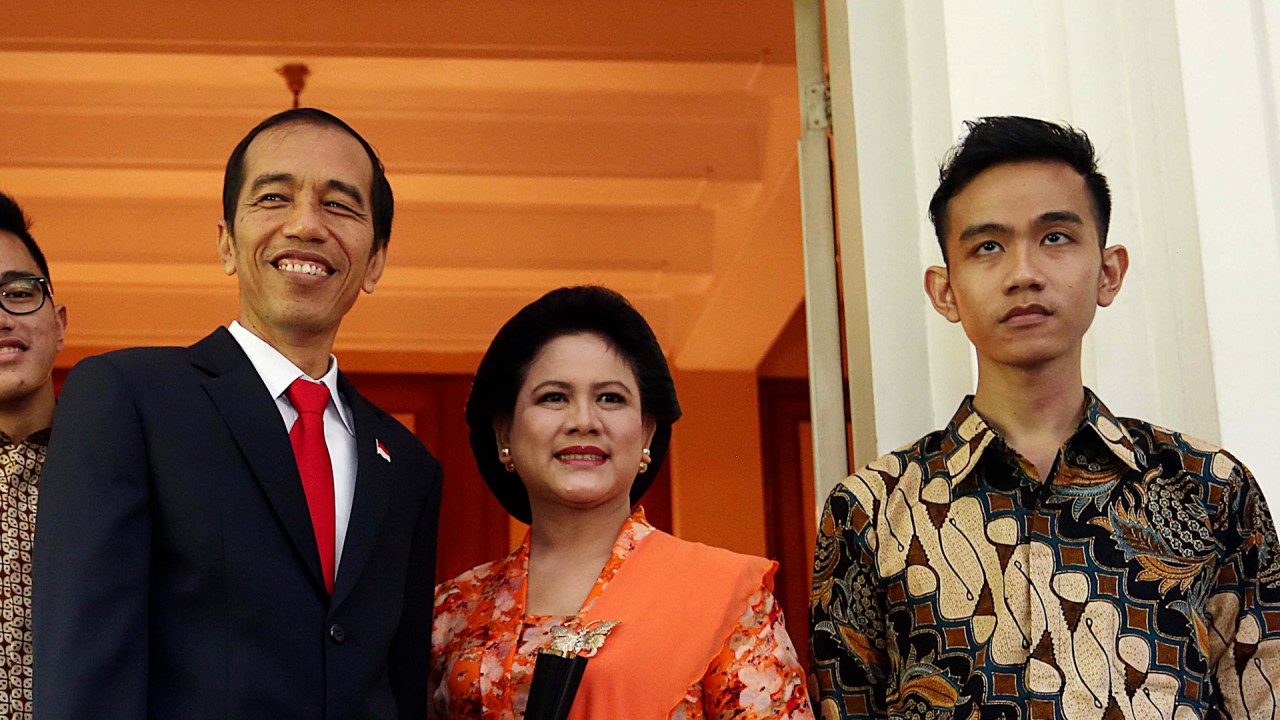Opinion | As Indonesia’s presidential election nears, debates won’t make or break Prabowo’s prospects
If the debates significantly influenced voter decisions, Prabowo would probably be trailing his opponents. According to Drone Emprit, a website analysing citizens’ social media posts, Anies received the most positive reactions (64 per cent and 76 per cent) in the two presidential debates held so far, followed by Ganjar (58 per cent and 72 per cent) and Prabowo (39 per cent and 40 per cent).
Indikator Politik’s latest survey of voters from January 10 to 16 found that the Prabowo-Gibran duo had the support of 48.6 per cent of respondents, Anies and Muhaimin 24.2 per cent, and Ganjar and Mahfud 21.6 per cent. With this significant lead, Prabowo and Gibran could secure over 50 per cent of the popular vote, winning the February 14 election outright, and would not need to contest a second round of voting. However, to do this, they would need to introduce something exceptional.
Debates alone are unlikely to cut it. If they did, Prabowo’s lacklustre performance and Gibran’s impressive showing would been reflected in fluctuations in the pair’s approval ratings. Drone Emprit’s analysis revealed that Gibran earned the most positive public reactions, at 70 per cent, after the first vice-presidential debate. Despite this, the pair’s popularity remained stagnant from December 1 to January 6.

This stance could sway swing voters, who constitute nearly 30 per cent of the electorate. The CSIS survey also highlighted the Prabowo-Gibran pair’s higher likelihood of electoral success in various regions.
By far the most impactful factor enhancing Prabowo’s presidential election prospects is his strategic choice of Widodo’s son, Gibran, as his running mate, implying the president’s endorsement of the pair.
Indonesia election winner could be determined by 1 woman
Indonesia election winner could be determined by 1 woman
Indonesia’s political system, including elections, is characterised by patronage politics or clientelism, the practice of handing out goods or services in exchange for political support. As noted by Edward Aspinall and Ward Berenschot in Democracy for Sale: Elections, Clientelism, and the State in Indonesia, the legacy of President Suharto’s “New Order” regime (1966-98) “institutionalised patronage distribution through non-party channels” like community leaders and religious and social networks.
Control over state resources became concentrated in the hands of bureaucrats and community-level state officials. Despite economic liberalisation since the 1980s and democratisation after 1998, the patronage system, dominated by political, bureaucratic and business elite, has persisted. Politicians “build personal teams, cultivate personal clienteles, and foster personal relationships with social networks” to distribute state resources and secure electoral victory.
Candidates with the strongest social networks gain greater access to state resources, which are then distributed to community leaders. These leaders, in turn, function as vote brokers, providing cash or other material benefits to voters in exchange for support for a specific candidate.
Furthermore, laws are routinely amended and implemented to safeguard and entrench the interests of oligarchic forces, shaping how power and wealth are distributed. This is evident in the systemic efforts being made to favour Prabowo and Gibran in the elections.
Third, Widodo’s endorsement of the Prabowo-Gibran pair implies the support of the “elite club” of seven political parties whose confidence Jokowi secured in his second term. This backing proved instrumental for passing controversial laws aligning with his political and economic agendas and quelling opposition.
Fourth, Widodo strategically announced policies through a presidential regulation with clear electoral implications. Earlier this month, he declared an 8 per cent pay rise nationwide for civil servants, police officers and soldiers – the first for most of them since 2019.
Additionally, he pledged continued support for low-income households, including distribution of an 8kg rice sack possibly up to June, cash subsidies for households affected by El Nino for another six months, and financial assistance for over 18 million students.
Lastly, Widodo’s soaring public approval rating – which hit 81.7 per cent last year – coupled with Prabowo-Gibran’s approval ratings solidifies their dominance in the presidential race.
Asma Khalid is an independent researcher and former visiting fellow at the Stimson Center


